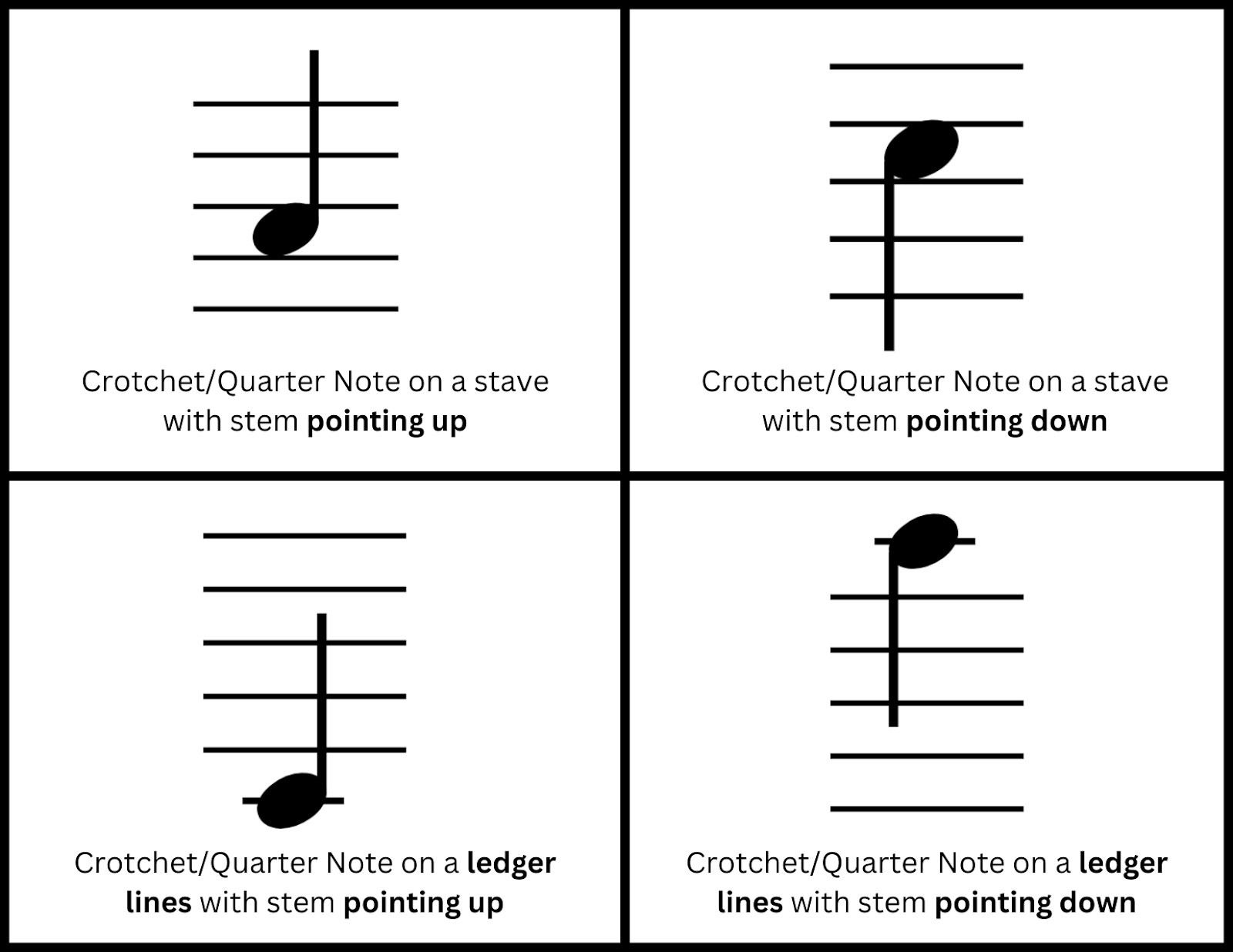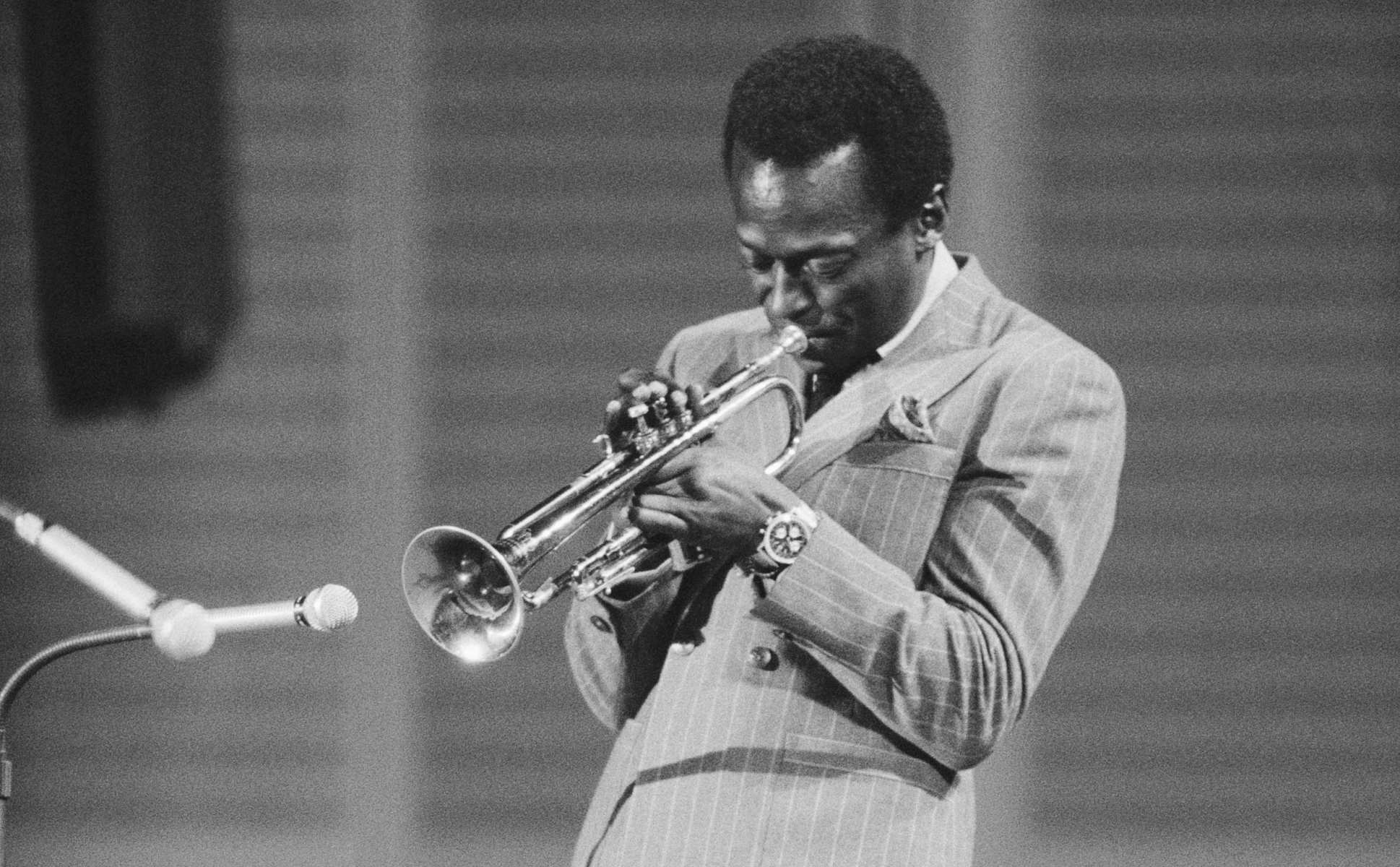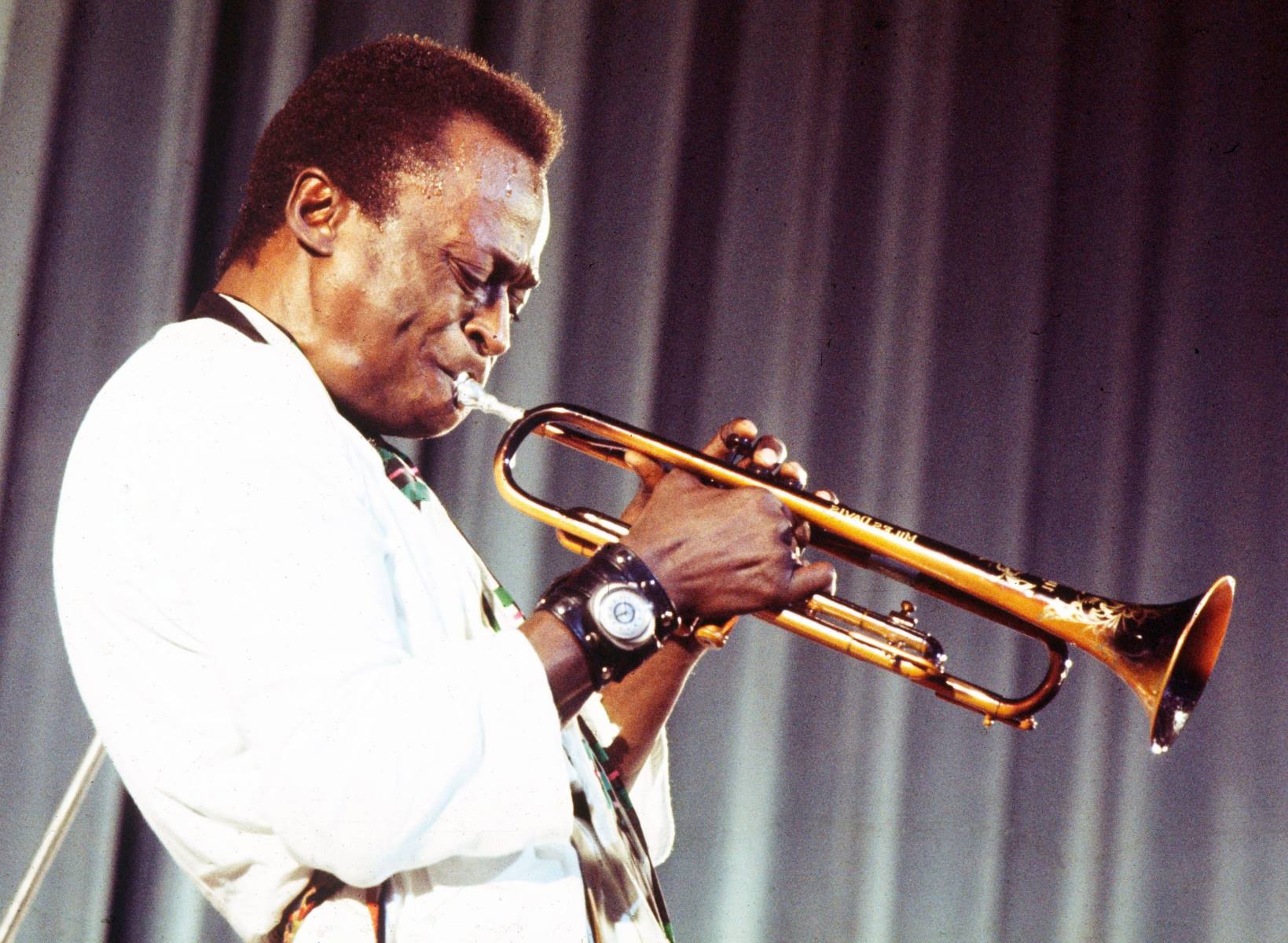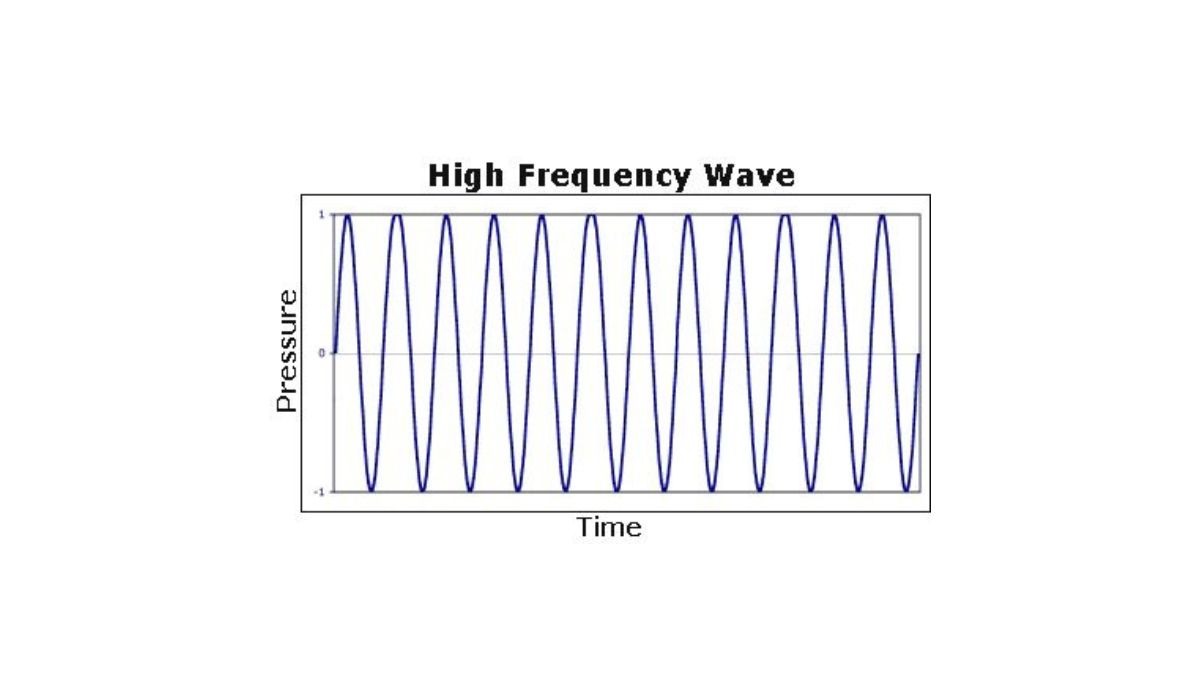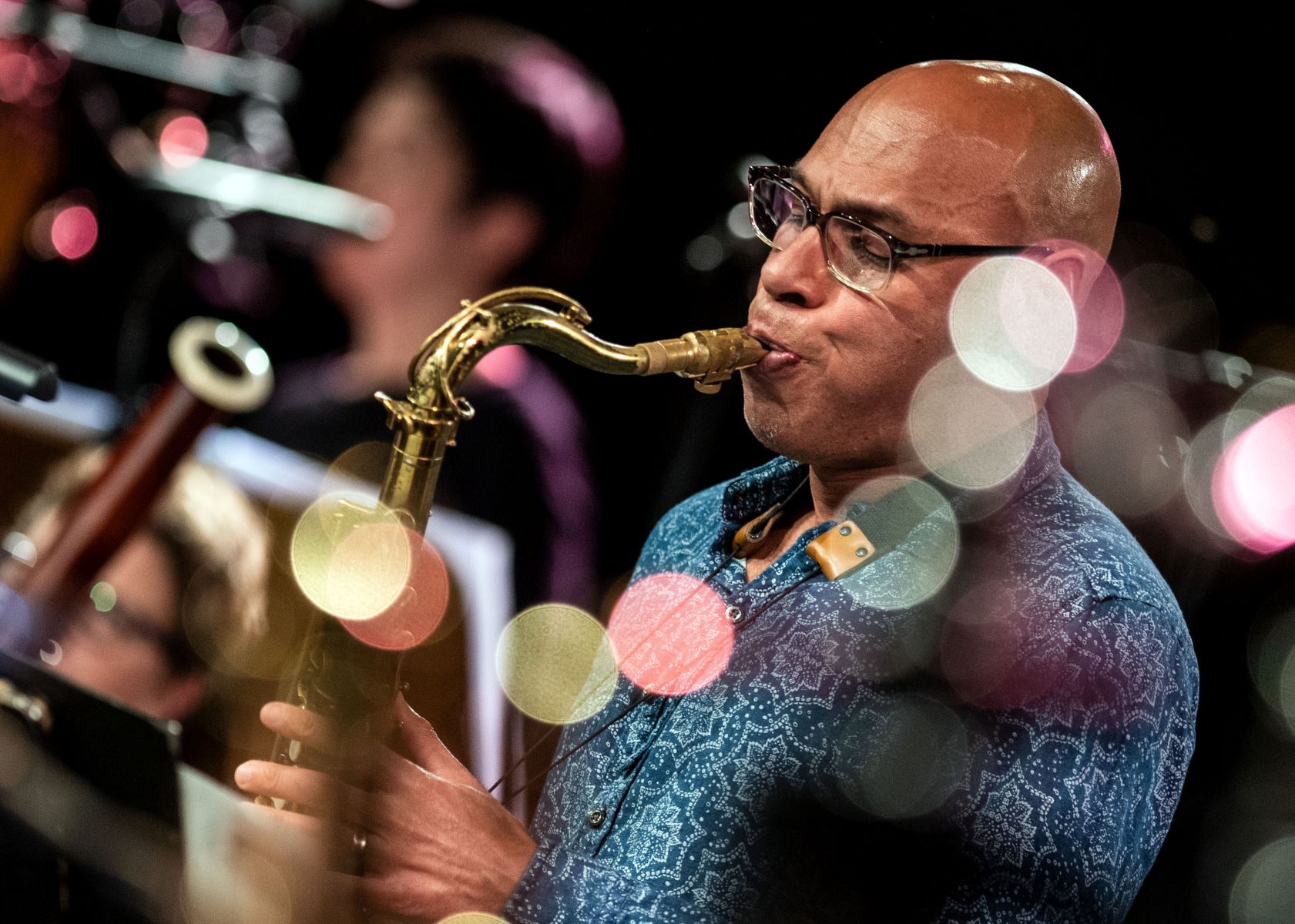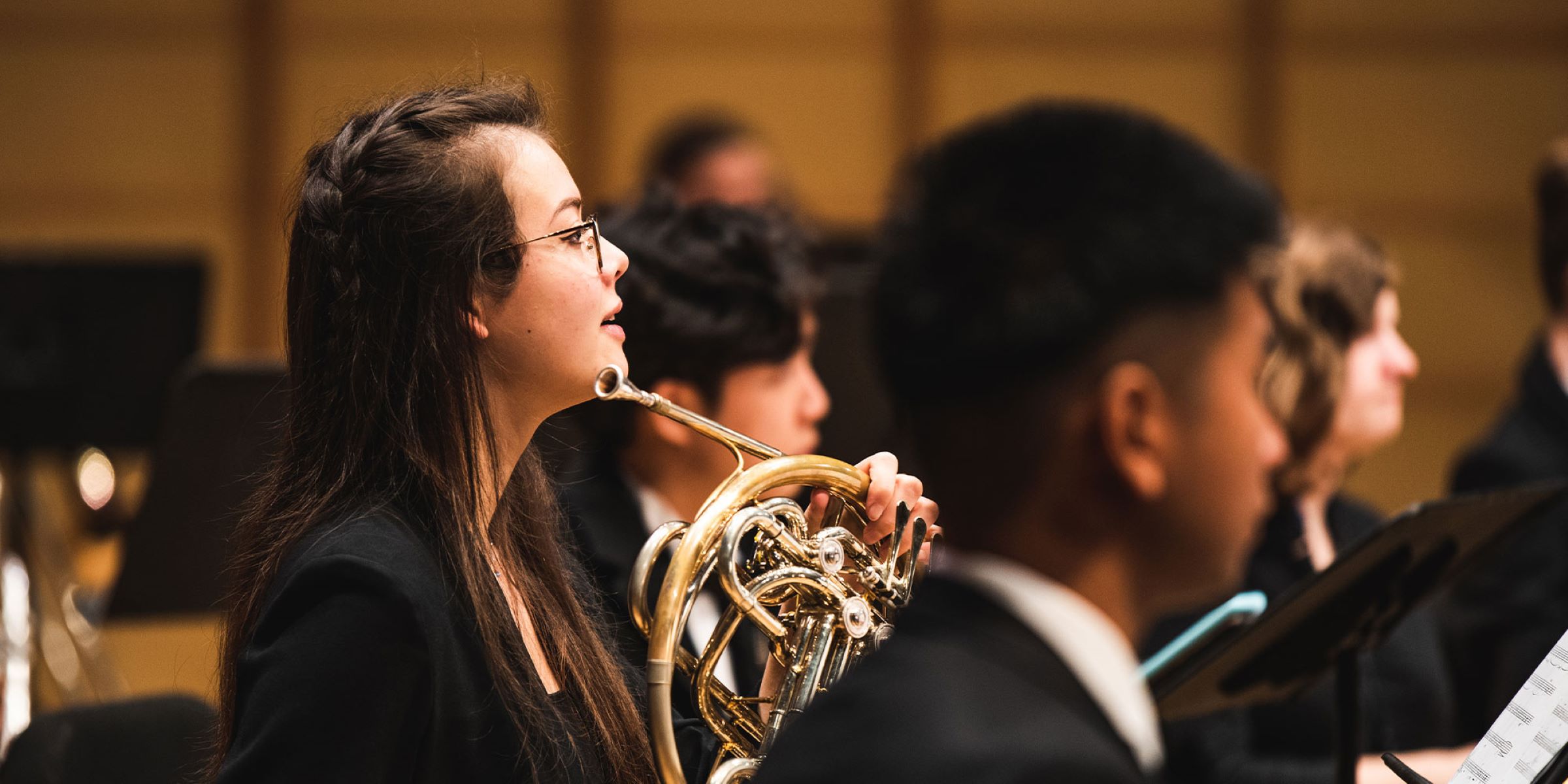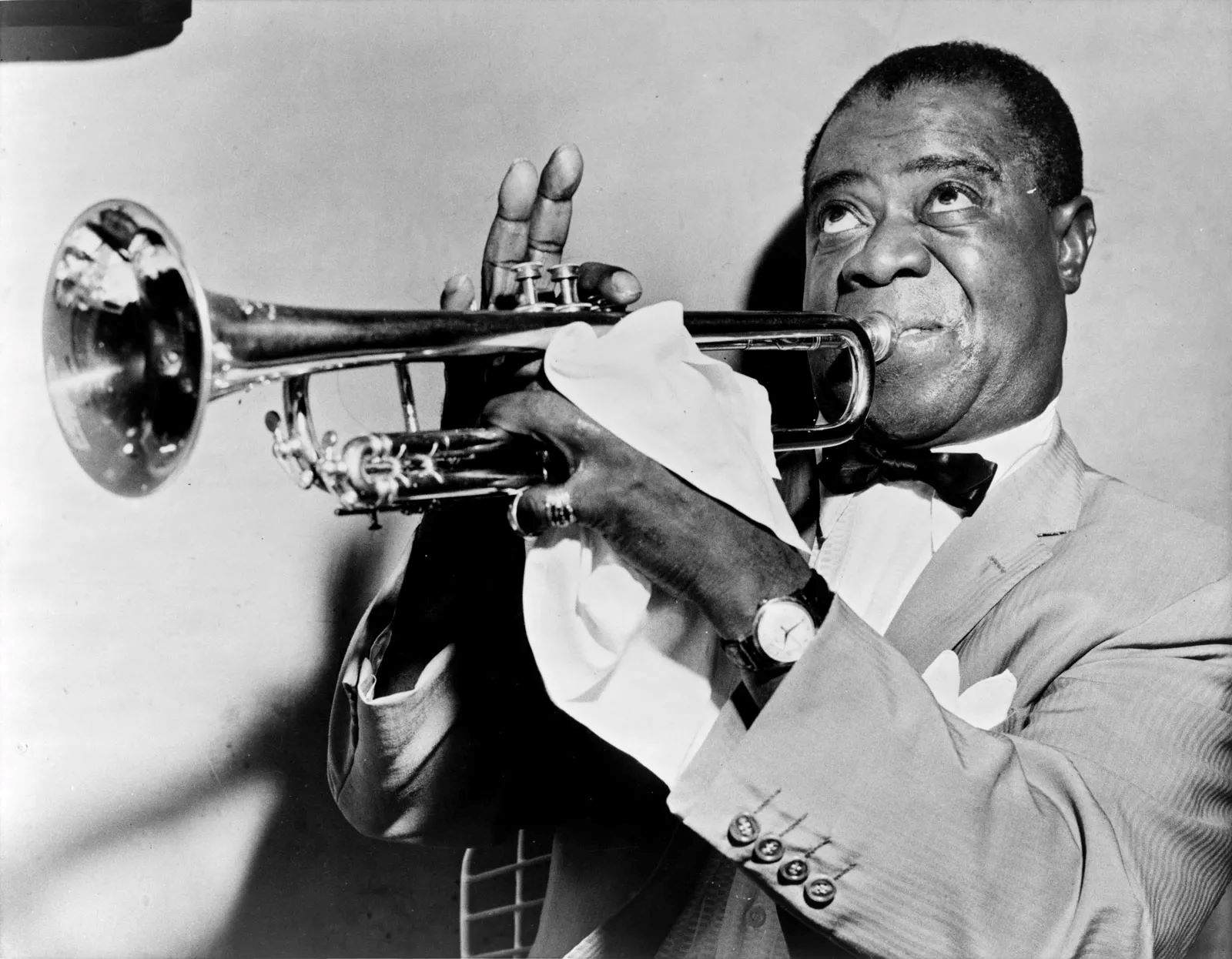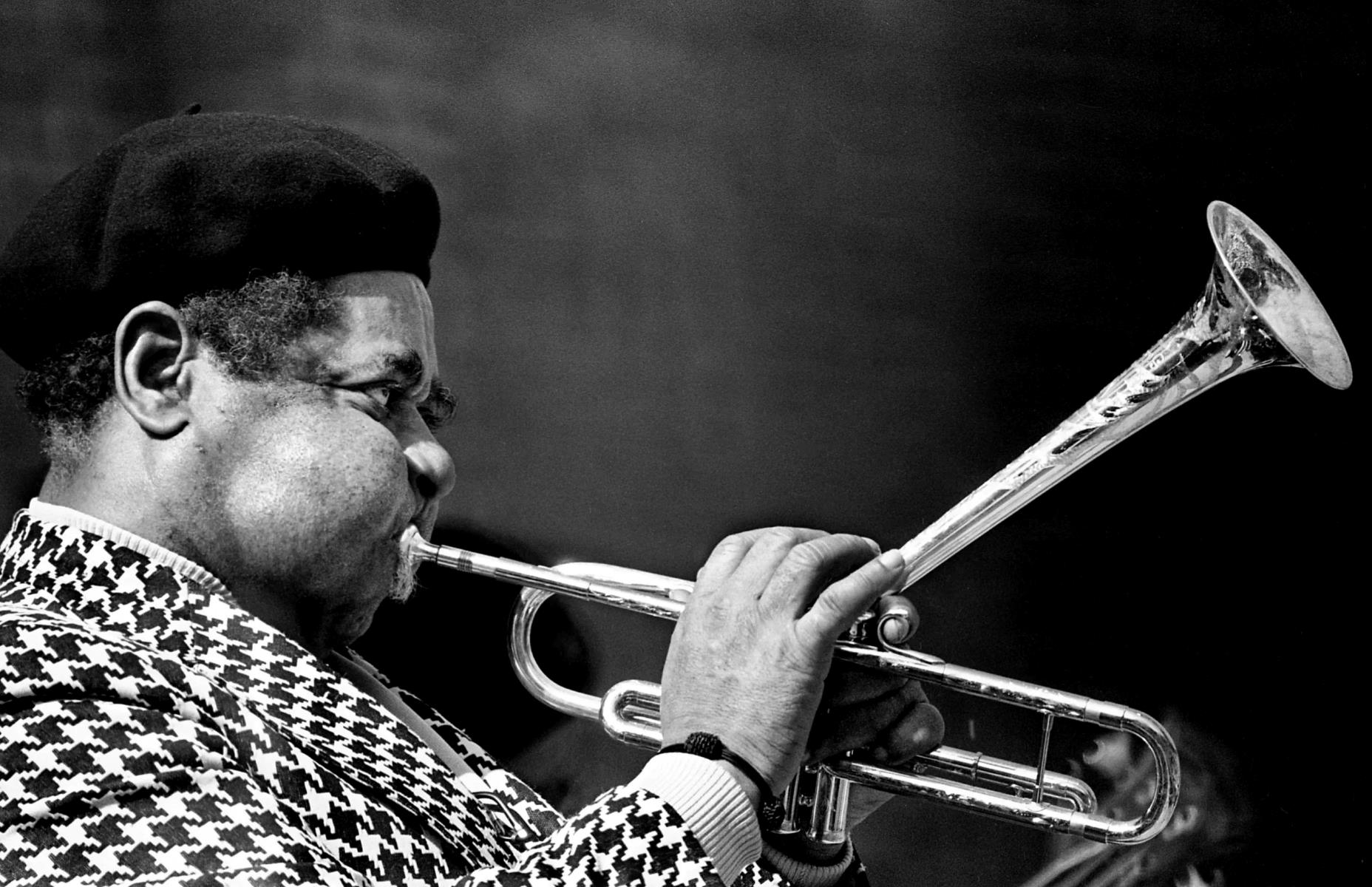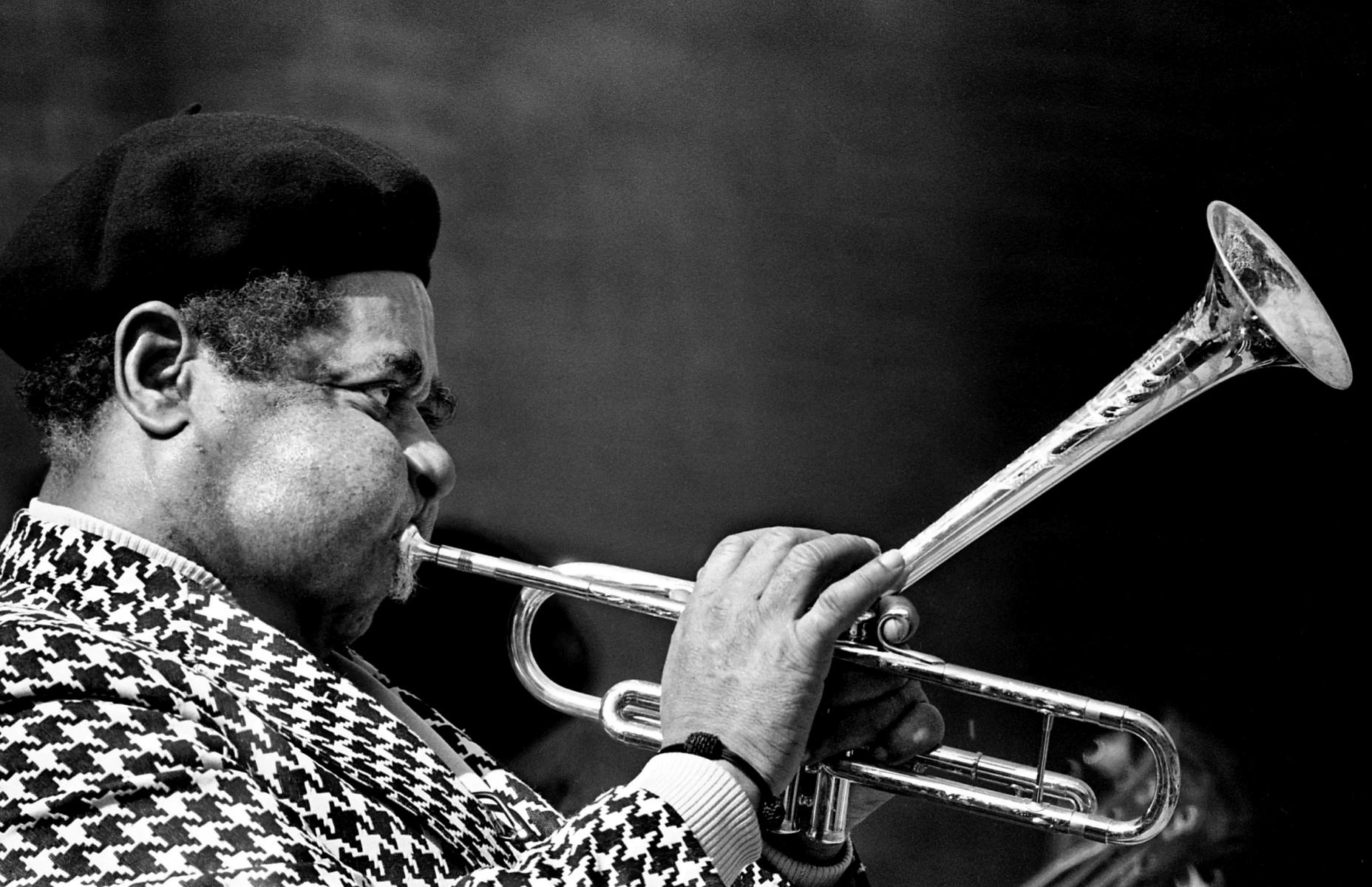Home>Genres>Jazz>What Do Jazz Musicians Place A High Value On
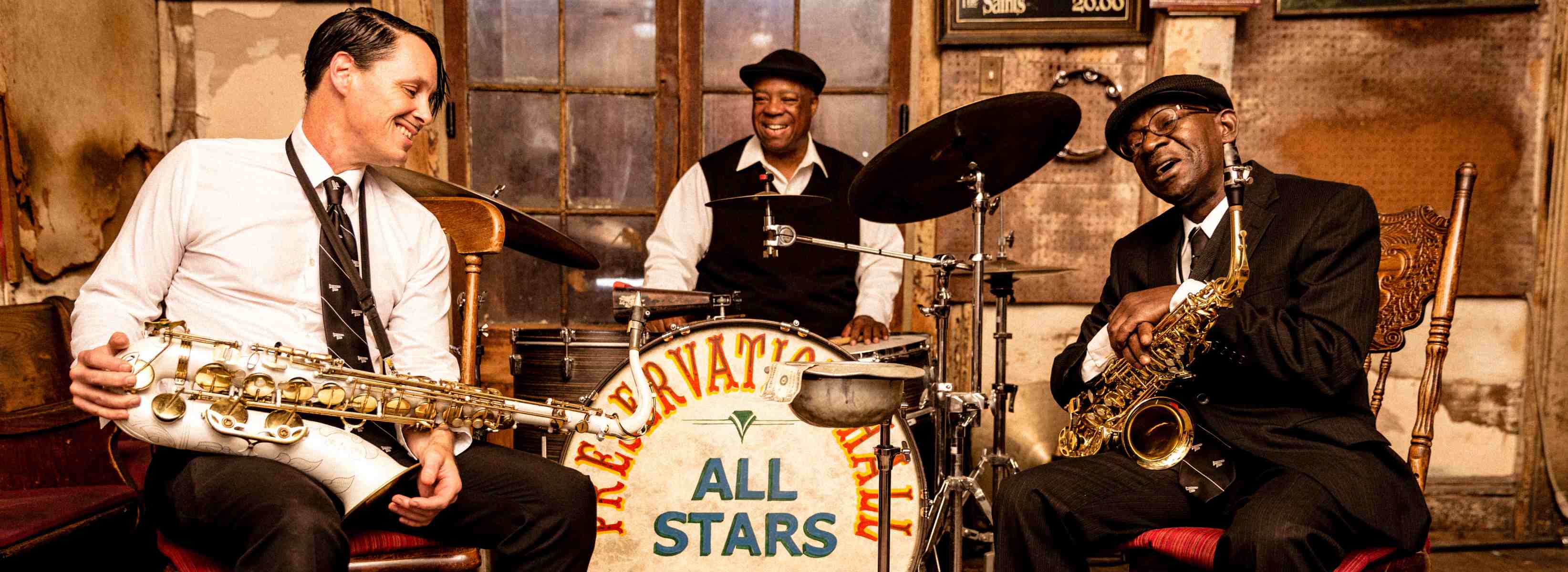

Jazz
What Do Jazz Musicians Place A High Value On
Modified: January 29, 2024
Discover what jazz musicians place a high value on and learn about the key aspects of this genre that make it so unique. Explore the world of jazz and its rich history.
(Many of the links in this article redirect to a specific reviewed product. Your purchase of these products through affiliate links helps to generate commission for AudioLover.com, at no extra cost. Learn more)
Table of Contents
Introduction
Jazz is a genre of music that originated in the early 20th century in the United States, and has since become a global phenomenon. Known for its unique blend of improvisation, syncopation, and complex harmonies, jazz has captivated audiences and influenced countless musicians across different genres. At the core of jazz music lies a deep appreciation for skill, creativity, and collaboration, as well as a strong connection to its rich historical and cultural roots.
In this article, we will explore the values that jazz musicians place a high importance on. From their mastery of musical technique to their commitment to constant learning and growth, jazz musicians embody a unique set of characteristics that contribute to the artistry and innovation of the genre.
Join us as we delve into the world of jazz and uncover the principles that jazz musicians hold dear. Whether you’re a seasoned jazz enthusiast or just starting to explore this rich musical tradition, this article will give you a deeper insight into the values that shape the world of jazz.
Musical Skill and Technique
One of the foundational values in jazz is the emphasis on musical skill and technique. Jazz musicians dedicate countless hours to mastering their instrument and honing their technical abilities. Whether it’s playing the saxophone, trumpet, piano, bass, or drums, each musician strives to achieve a high level of proficiency.
Jazz requires a deep understanding of music theory, including complex harmonies, chord progressions, and improvisational techniques. Musicians must possess a strong command of their instrument, with the ability to play intricate melodies, execute intricate rhythms, and navigate challenging improvisational passages.
Furthermore, jazz musicians often engage in rigorous practice routines to refine their skills. They constantly push themselves to explore new techniques, expand their musical vocabulary, and refine their sense of timing and phrasing. This relentless pursuit of excellence allows jazz musicians to express themselves with artistic precision and musicality.
It’s worth noting that while technical skill is crucial, jazz musicians also recognize the importance of musicality, expression, and individuality. They strive to strike a balance between flawless execution and expressing their unique musical voice. This blend of technical prowess and artistic interpretation is what sets jazz music apart and allows for endless possibilities of musical expression.
Improvisation
One of the defining features of jazz music is its emphasis on improvisation. Unlike other genres where performances are mostly based on pre-composed music, jazz encourages musicians to spontaneously create and weave melodies, harmonies, and rhythms in real-time.
Improvisation in jazz allows musicians to showcase their creativity, musicality, and knowledge of improvisational techniques. It is a form of musical conversation where musicians respond to each other’s ideas, interact, and build upon the collective energy of the ensemble.
Jazz musicians develop their improvisational skills through a combination of technical proficiency, theoretical understanding, and listening to and studying the work of jazz legends. They learn to navigate complex chord progressions, employ melodic variations, and utilize different scales and modes to create unique musical phrases.
Improvisation in jazz is not confined to solo performances, but is also an integral part of ensemble playing. Each member of the band takes turns to improvise, creating an ever-evolving and dynamic musical tapestry. This collaborative approach to improvisation fosters a sense of spontaneity, creativity, and adaptability within the performance.
Ultimately, jazz musicians view improvisation as a means of self-expression and personal storytelling. It allows them to break free from the constraints of written music, and explore new harmonic, rhythmic, and melodic landscapes. Through the art of improvisation, jazz musicians push the boundaries of their musical abilities and create truly unique and captivating performances.
Creativity and Originality
Creativity and originality are highly valued traits in the world of jazz. Jazz musicians constantly strive to push the boundaries of musical expression, seeking new and innovative ways to approach their craft.
While jazz is deeply rooted in tradition, with a rich history spanning decades, jazz musicians are encouraged to develop their unique voice and style. They explore different musical influences, experiment with unconventional chord progressions, and incorporate elements from various genres into their compositions and performances.
Jazz musicians often compose their own music, creating original compositions that reflect their individuality and artistic vision. They seek to challenge conventions and bring fresh perspectives to the genre, infusing it with their own personal experiences and emotions.
Moreover, jazz musicians are not afraid to take risks and embrace spontaneity in their performances. They embrace the unexpected, allowing their creative instincts to guide them in the moment. This approach can lead to magical musical moments where the audience witnesses something completely unique and unreproducible.
Originality in jazz is not limited to composing and performance. Jazz musicians also incorporate improvisation into their creative process, exploring new harmonic structures and melodic ideas on the spot. They embrace the unknown and welcome the exploration of uncharted musical territories.
Ultimately, the emphasis on creativity and originality in jazz fosters a culture of artistic innovation. It encourages musicians to think outside the box, take risks, and push the boundaries of what is considered “conventional.” It is this spirit of exploration and trailblazing that keeps jazz music alive and evolving in the modern era.
Collaboration and Communication
In jazz, collaboration and communication are essential elements that contribute to the richness and vitality of the music. Jazz musicians highly value the ability to work together seamlessly, creating a cohesive and expressive musical experience.
Jazz is often performed in ensembles, ranging from small groups to big bands. Each member of the ensemble plays a crucial role in the overall sound and dynamics of the performance. Collaboration begins with active listening, with musicians attentively listening to each other to create a dialogue and respond to one another’s musical ideas.
Through effective communication, jazz musicians coordinate and synchronize their playing, ensuring that their individual contributions align harmoniously with the rest of the ensemble. They communicate musical ideas, dynamics, and cues through non-verbal gestures and musical signals, allowing for improvisation and flexible interpretation within the performance.
Jazz musicians understand that collaboration extends beyond the actual performance. They engage in rehearsals, where they work together to refine arrangements, rehearse difficult passages, and explore new approaches to the music. This cooperative atmosphere fosters a sense of trust and teamwork among the musicians, enhancing the overall musical experience.
Collaboration in jazz also extends beyond the immediate ensemble. Jazz musicians often collaborate with other artists from different genres, using their knowledge and skills to explore new sonic landscapes and create unique musical fusions. This cross-pollination of ideas and styles leads to innovative and diverse musical expressions.
Ultimately, collaboration and communication are at the heart of jazz music. It is through the collective effort and shared musical language that jazz musicians are able to create compelling performances that resonate with audiences and stand the test of time.
Developing a Unique Voice
In the world of jazz, developing a unique voice is highly prized. Jazz musicians strive to cultivate a distinct and recognizable style that sets them apart from others. They aim to create a musical identity that reflects their own personality, experiences, and artistic vision.
Developing a unique voice in jazz involves a combination of technical proficiency, individual expression, and personal exploration. Jazz musicians work on mastering their instrument, honing their technical skills, and expanding their musical vocabulary. This strong foundation allows them to express themselves with clarity and precision.
Moreover, jazz musicians experiment with different musical elements, such as phrasing, rhythm, and tone, to create their own signature sound. They explore unconventional approaches to improvisation, harmonic variations, and melodic patterns, allowing their individuality to shine through.
Developing a unique voice in jazz also requires a deep understanding of the genre’s history and influences. Jazz musicians study the work of jazz legends, absorbing their creative ideas and approaches. However, they do not simply replicate what has been done before; rather, they integrate and reinterpret these influences in a way that is uniquely their own.
Add sentence instead of the break statement. For example, they might combine elements of traditional jazz with modern influences, or infuse their music with elements from other genres like funk, soul, or world music. In doing so, they create a musical voice that is distinctively theirs.
Furthermore, developing a unique voice in jazz is an ongoing journey. It requires constant exploration, self-reflection, and growth. Jazz musicians are never satisfied with staying stagnant; they continually push themselves to evolve and expand their artistic horizons.
Ultimately, developing a unique voice is a mark of artistic maturity and individuality in the world of jazz. It allows musicians to connect deeply with their audience, conveying their emotions and experiences in a way that is authentic and captivating. It is through this unique voice that jazz musicians leave their lasting imprint on the genre and make a lasting impact on the music world.
Dedication and Commitment
Dedication and commitment are essential values that jazz musicians uphold in their pursuit of excellence. Jazz is a demanding genre that requires extensive practice, perseverance, and a lifelong commitment to honing one’s craft.
Jazz musicians understand that mastery of their instrument and the complexities of the genre cannot be achieved without dedicated practice. They devote countless hours to perfecting their technique, exploring different improvisational approaches, and deepening their understanding of music theory.
Furthermore, jazz musicians embrace a strong work ethic that drives them to constantly strive for improvement. They maintain a disciplined practice routine, setting specific goals and challenging themselves to reach new heights of musical proficiency. This dedication to their craft allows jazz musicians to deliver exceptional performances and continually push the boundaries of their abilities.
Moreover, jazz musicians are committed to the ongoing development of their musical skills. They attend workshops, masterclasses, and educational programs to refine their technique, learn from industry professionals, and broaden their musical perspectives. They also seek out opportunities to collaborate with other musicians, both within and outside of the jazz genre, in order to expand their musical horizons.
In addition to personal growth, jazz musicians are dedicated to preserving and promoting the legacy of jazz music. They respect the traditions and historical foundations of the genre, while also seeking to innovate and push it forward. They immerse themselves in the history of jazz, studying the work of influential musicians and understanding the cultural and social contexts in which the music originated.
Overall, dedication and commitment are at the core of a jazz musician’s approach to their craft. It is through these values that they are able to continually evolve as artists, contribute to the ongoing legacy of jazz, and create meaningful and impactful music that resonates with audiences around the world.
Historical and Cultural Knowledge
Historical and cultural knowledge form an integral part of the values cherished by jazz musicians. To truly appreciate and understand the essence of jazz, musicians must delve into the rich history and cultural origins of the genre.
Jazz has its roots in African-American communities, particularly in New Orleans, where a blending of African and European musical traditions occurred. Jazz musicians recognize and pay homage to this diverse heritage, as well as the historical significance of jazz as a form of expression for marginalized communities.
By studying the history of jazz, musicians gain insights into the evolution of the genre, its key figures, and pivotal moments that have shaped its development. They learn about early pioneers like Louis Armstrong, Duke Ellington, and Charlie Parker, whose contributions laid the foundation for modern jazz.
Understanding the cultural context in which jazz emerged is crucial for jazz musicians. They explore the social, political, and cultural influences that shaped the evolution of jazz, such as the Civil Rights Movement and the Harlem Renaissance. This knowledge enhances their ability to interpret and imbue their performances with the spirit and essence of the music.
Jazz musicians also delve into the diverse styles and sub-genres of jazz, such as bebop, cool jazz, and fusion, each with their own unique cultural and historical significance. This exploration enriches their musical vocabulary and enables them to incorporate various stylistic elements into their playing.
Furthermore, historical and cultural knowledge allows jazz musicians to engage in dialogues with the past, present, and future of the genre. They draw inspiration from the foundation laid by earlier generations of jazz musicians while also contributing to its ongoing evolution.
By integrating this historical and cultural knowledge into their music, jazz musicians pay respect to the traditions and artistic innovations of those who came before them, while simultaneously forging their own path and adding their unique contributions to the ever-evolving jazz narrative.
Ultimately, historical and cultural knowledge empowers jazz musicians to not only master their craft but also to engage in a broader conversation that connects the past, present, and future of jazz music.
Constant Learning and Growth
Constant learning and growth are fundamental values in the world of jazz. Jazz musicians embrace a lifelong journey of musical exploration, always seeking to expand their knowledge, skills, and artistic horizons.
Jazz is a genre that offers endless possibilities for musical expression, and as such, musicians are committed to continuously pushing themselves to learn and grow. They engage in regular practice sessions, refine their techniques, and explore new musical concepts and approaches.
Learning in jazz goes beyond individual practice sessions. Jazz musicians understand the importance of collaborating and connecting with other musicians. They actively seek out opportunities to perform with and learn from musicians who possess different perspectives and experiences. This collaborative process fosters a rich exchange of ideas and allows for mutual growth.
Moreover, jazz musicians are avid listeners. They engage with a wide range of music, not just within the jazz genre but also from various other genres and styles. By listening to diverse music, they expand their musical vocabulary, draw inspiration from different sources, and find ways to infuse new elements into their own playing.
In addition, jazz musicians participate in workshops, masterclasses, and educational programs. They attend lectures, study historical recordings, and immerse themselves in the works of influential jazz artists. This thirst for knowledge and understanding of the genre’s history and innovations nurtures their growth as musicians.
Constant learning and growth in jazz also involve embracing the unexpected. Jazz musicians are open to challenges and new experiences, recognizing that these are opportunities for personal and artistic development. They welcome the unknown and are not afraid to take risks and step outside their comfort zones.
Furthermore, jazz musicians believe that growth is not limited to technical proficiency alone. They understand the importance of emotional and intellectual growth in their playing. They seek to develop a deeper understanding of themselves, their emotions, and the messages they wish to convey through their music.
Ultimately, constant learning and growth are cornerstones of the jazz musician’s journey. By embodying these values, they continue to evolve as artists, push the boundaries of their creativity, and contribute to the ever-evolving landscape of jazz music.
Emotional Expression and Communication
Emotional expression and communication are central to the values upheld by jazz musicians. Jazz is a genre that embraces the power of music to convey deep emotions and to connect with audiences on a profound level.
Jazz musicians strive to express their innermost emotions through their music. They use their instruments as a means of personal expression, channeling their feelings, experiences, and perspectives into every note they play. Jazz allows musicians to communicate their deepest emotions, whether it be joy, sorrow, longing, or excitement.
Emotional expression in jazz is not limited to the individual musician, but also extends to the collective experience of the ensemble. Jazz musicians engage in musical conversations, exchanging ideas and emotions with their fellow musicians in real-time. They respond to each other’s playing, creating a rich and dynamic musical dialogue that conveys and amplifies the emotional content of the music.
Through their performances, jazz musicians communicate with their audience, creating a powerful connection that transcends words. They aim to evoke an emotional response from listeners, whether it be through the energy of an up-tempo swing tune, the melancholy of a ballad, or the exuberance of a solo improvisation.
Jazz musicians are masters of musical storytelling. They use phrasing, dynamics, and articulation to shape their performances, weaving narratives that engage and captivate listeners. They understand the power of silence and the importance of subtlety, using these tools to convey a range of emotions and create a sense of intimacy in their playing.
Moreover, jazz musicians draw inspiration from various musical genres and styles, as well as from different art forms. They recognize that emotional expression is not limited to music alone. They may incorporate elements from poetry, visual arts, literature, and dance to enhance the emotional depth and impact of their performances.
By embracing emotional expression and communication, jazz musicians create a unique bond with their audience. They invite listeners on a journey of shared emotions, connecting and resonating with them on a deeply personal level. Through their music, jazz musicians forge a profound sense of connection and understanding that transcends cultural and linguistic barriers.
Respect for Tradition
Respect for tradition is a core value held by jazz musicians. Jazz has a rich history that spans over a century, and jazz musicians recognize the importance of honoring and paying homage to the musicians, styles, and innovations that came before them.
Jazz musicians study the work of jazz legends, learning from their recordings, transcribing their solos, and analyzing their musical concepts. They immerse themselves in the traditions of the genre, understanding the evolution of jazz and the contributions made by iconic figures like Louis Armstrong, Miles Davis, and John Coltrane.
Respecting tradition in jazz involves not only studying the music itself, but also understanding the cultural and social contexts in which it was created. Jazz emerged as a form of expression for marginalized communities, particularly African Americans, and jazz musicians acknowledge and honor this heritage.
While respecting tradition is essential, jazz musicians also seek to reinterpret and innovate within the genre. They incorporate their own unique perspectives, experiences, and influences into their music, infusing it with their personal style while still maintaining a deep respect for the foundations of jazz.
Jazz musicians celebrate the classic standards and compositions that have become iconic within the genre. They perform these timeless pieces, giving them new life through individual interpretation and improvisation. This balance between preserving tradition and adding their own creative flair allows jazz musicians to bring a fresh perspective to familiar material.
Respect for tradition in jazz is also evident in the live performance setting. Jazz musicians often engage in jam sessions and collaborative performances, creating a sense of community and camaraderie. They embrace the concept of “call and response,” echoing the spirit of early jazz gatherings and musical exchanges.
Furthermore, jazz musicians understand the importance of passing down the tradition to future generations. They serve as mentors and educators, sharing their knowledge and experiences with aspiring musicians. They encourage younger musicians to study the history and traditions of jazz while nurturing their own individuality and artistic growth.
By maintaining a deep respect for tradition, jazz musicians ensure that the rich legacy of jazz is preserved and celebrated. They carry the torch passed down by their predecessors, contributing to the ongoing evolution of jazz while honoring the invaluable contributions of those who came before.
Conclusion
Jazz music is a genre that embodies a unique set of values, which jazz musicians hold dear. From their dedication to mastering musical skill and technique to their commitment to constant learning and growth, jazz musicians exemplify the passion and discipline required to excel in their craft.
Improvisation serves as a hallmark of jazz, allowing musicians to express their creativity and engage in spontaneous musical conversations. Jazz musicians also prioritize cultivating a unique voice, striving to develop a distinct style that reflects their personality and artistic vision.
Collaboration and communication are essential in jazz, as musicians work together to create a cohesive and expressive musical experience. They value the historical and cultural knowledge that underpins the genre, while embracing the opportunities to innovate and push the boundaries of jazz music.
Emotional expression and communication are at the heart of jazz, as musicians seek to connect with audiences on a profound level. They respect the traditions of the genre, while also exploring new pathways for artistic exploration and reinterpretation.
In conclusion, the values that jazz musicians prioritize, including musical skill, improvisation, creativity, collaboration, uniqueness, dedication, historical knowledge, constant learning, emotional expression, and respect for tradition, contribute to the enduring appeal and evolution of jazz music. Jazz musicians continually push the boundaries of their art, breathing new life into the genre while staying connected to its rich history and heritage. Through their music, they invite listeners on a captivating journey, sharing their emotions, experiences, and stories in a way that transcends language and culture.

